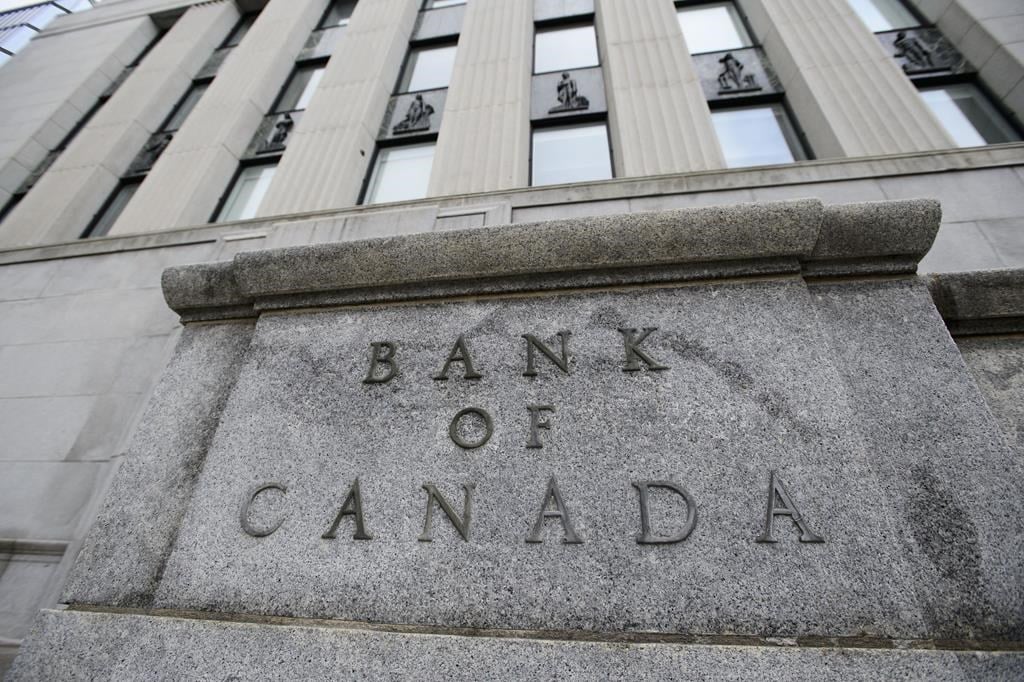
The Bank of Canada is warning inflation will stay higher for longer than it previously forecast and signalled that an interest rate hike may be coming sooner than expected.
The central bank said Wednesday it now forecasts that annual inflation rates will continue their upward swing through the rest of the year, averaging 4.75 per cent, and be 3.4 per cent next year, up from its previous forecast of 2.4 per cent, before coming back to its two per cent target by 2023.
Driving the rise in prices are global forces that have snarled supply chains, pushed up costs for companies and limited the supply of in-demand goods. The bank expects the worst of supply problems will hit at the end of the year.
Adding to pressures are higher prices for gasoline and natural gas, and a rebound in prices for some in-person services like hotels and flight fares.
Bank of Canada governor Tiff Macklem said higher prices are challenging for Canadians, making it harder for them to cover their bills.
“I want to assure you that inflation is not going to stay as high as it is today, even if it is going to take somewhat longer to come down,” he said.
“The Bank of Canada is committed to ensuring that price increases we’re experiencing today don’t become ongoing inflation. … As these forces play out, it is our job to bring inflation back to target, and I can assure you we will do that.”
The bank said the economy has rebounded far enough for it to end its government bond-purchasing program aimed at encouraging lower interest rates, but the recovery is far from complete, which is why it kept its key policy rate on hold at 0.25 per cent.
The bond purchases will be rolled back to the point where the bank effectively stops adding stimulus to the economy and rather maintain what is already there.
Macklem said the new pace of bond purchases will depend on the strength of the recovery and path for inflation, adding it is “reasonable to expect” bond-buying will keep up at least until the bank raises its policy rate.
In its outlook Wednesday, the bank suggests interest rate increases could start sooner than previously expected, as early as the second quarter of 2022, “although the very unusual challenges of reopening an economy make this timing more uncertain than usual.”
TD Bank senior economist Sri Thanabalasingam expects the Bank of Canada will raise rates three times next year, taking its key rate to one per cent by the end of 2022.
“Inflation is heating up, and it would be prudent to remove some monetary stimulus as the economy continues down the road to recovery,” Thanabalasingam wrote in a note.
“That being said, we must acknowledge that there is significant uncertainty around the economic outlook right now. A resurgence of the pandemic could result in greater stimulus, but if there is a faster-than-expected acceleration in household spending, the Bank could raise rates at a faster clip.”
In its monetary policy report, the Bank of Canada cut its expectations for growth in the Canadian economy this year to 5.1 per cent from its previous forecast of 6.0 per cent. Growth next year is now expected to clock in at 4.3 per cent, down from an earlier forecast for 4.6 per cent.
The central bank warned that economic growth could slow if there is a resurgence of COVID-19 cases, with the bank pointing to evidence that vaccine immunity may wane quicker than previously anticipated.
On the flip side, households may decide to start spending more of their savings sooner if they feel more comfortable carried on the back of high vaccination rates, which would raise demand and add to inflationary pressures.
Similarly, the outlook warns that temporary factors driving inflation could become even more persistent and drive wage growth that itself fuels an inflationary spiral.
Although the country has recovered the three million jobs lost during the depths of the COVID-19 downturn last year, unemployment remains above pre-pandemic levels and some employers are having a tough time hiring workers.
The bank said labour shortages could persist as more out-of-work Canadians look to re-skill and leave industries like restaurants and bars that are in need of workers.
So far, wage growth remains at or below pre-pandemic levels, but the bank is watching whether that changes as businesses try to attract talent.
This report by The Canadian Press was first published Oct. 27, 2021.




